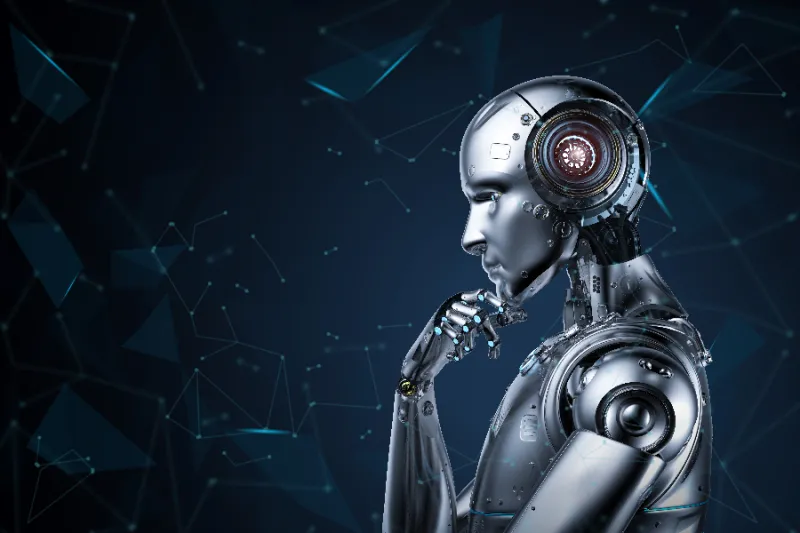
Rome, Italy, May 23, 2022 / 04:40 am (CNA).
Will robots one day be better at medicine and law than human beings? That was one of the topics discussed by scientists and theologians at a recent gathering in Rome.
The “Topology of Intelligence” conference, hosted by the Templeton World Charity Foundation on May 19, brought together experts in engineering, mathematics, biology, philosophy, and theology.
Scholars from both secular and pontifical universities sought to describe the “connection between science and philosophy” by focusing on “complexity, reality and the research on intelligence.”
Marta Bertolaso, a professor at the Campus Bio-Medico University of Rome who helped to organize the conference, said: “I think that we are at a good moment to discuss intelligence and specifically artificial intelligence, because there are many questions around these topics.”
She explained that artificial intelligence (AI) is a term dating back to the last century, “coined precisely in order to represent how human beings try to mobilize some aspects, some functions, of our intellectual capabilities.”
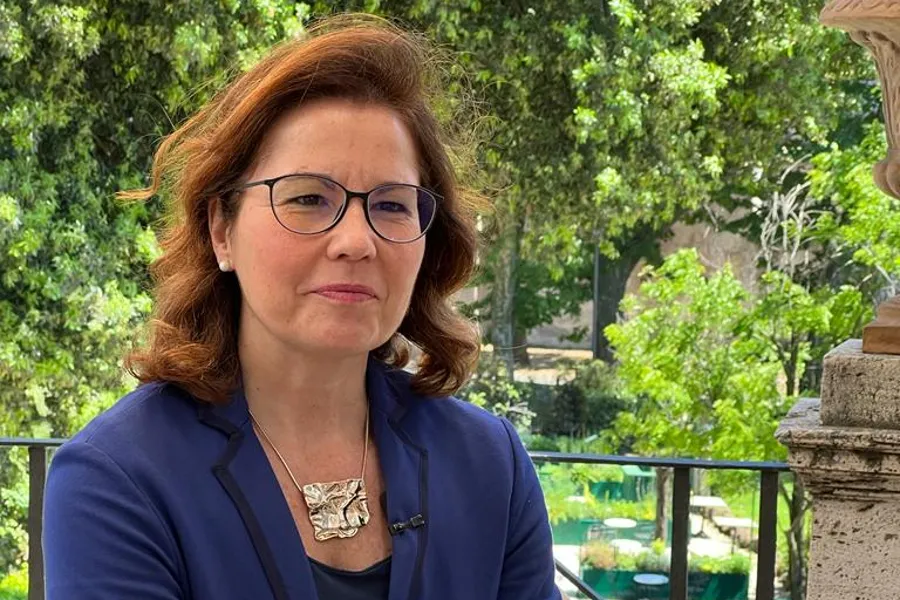
Bertolaso said that the challenge posed by AI was not so much its technological possibilities, but how humans can use it to build new environments that are still worthy of living in. Overall, she was fairly optimistic that new developments would have a positive impact on humanity’s future.
That optimism was shared by Andrew Serazin, the president of the Templeton World Charity Foundation.
“I think that we were reminded today that within the Christian tradition, within the Catholic tradition, there’s this sense of openness of history, that we are co-creators of the future with the Divine and the Church is a way to achieve this co-creation,” he said.
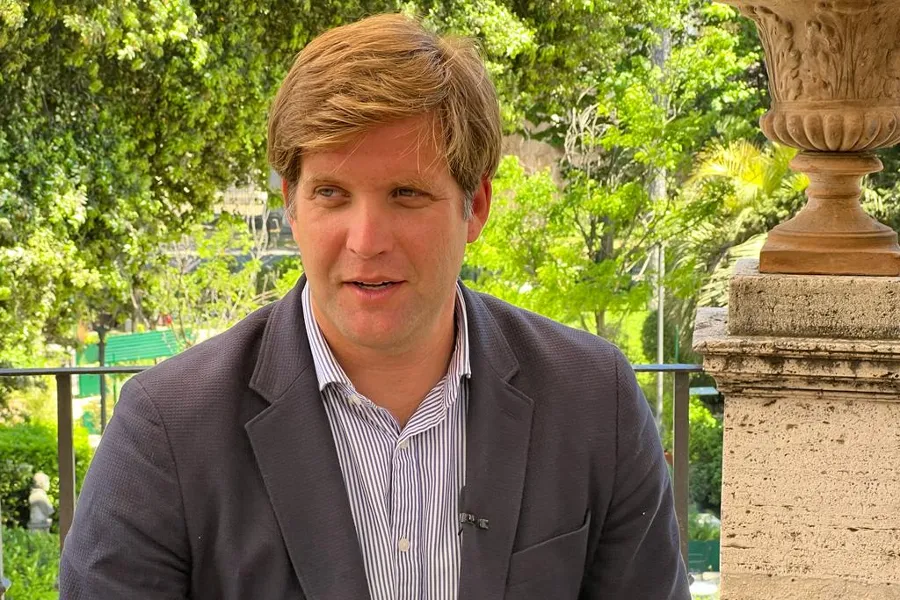
He added that he was “tremendously optimistic about the application of science and technology,” as well as the development of AI, but only “if we retain our fundamental values of the pursuit of truth and the dignity of the person.”
Max Bonilla, international director of the Expanded Reason Institute at the University of Francisco de Vitoria in Spain, initiated the gathering in order to “bridge Church and science.” He also wanted to promote a deeper understanding of intelligence, as well as to deepen the dialogue between the empirical sciences and philosophy and theology.
The conference was organized in three parts around the concepts of expressing, defining, and understanding intelligence.
In the first part, the audience listened to the insights of Andrew Barron, a neuroethologist at Australia’s Macquarie University, who explained how bees display a certain kind of intelligent behavior in their flight patterns and navigation decisions.
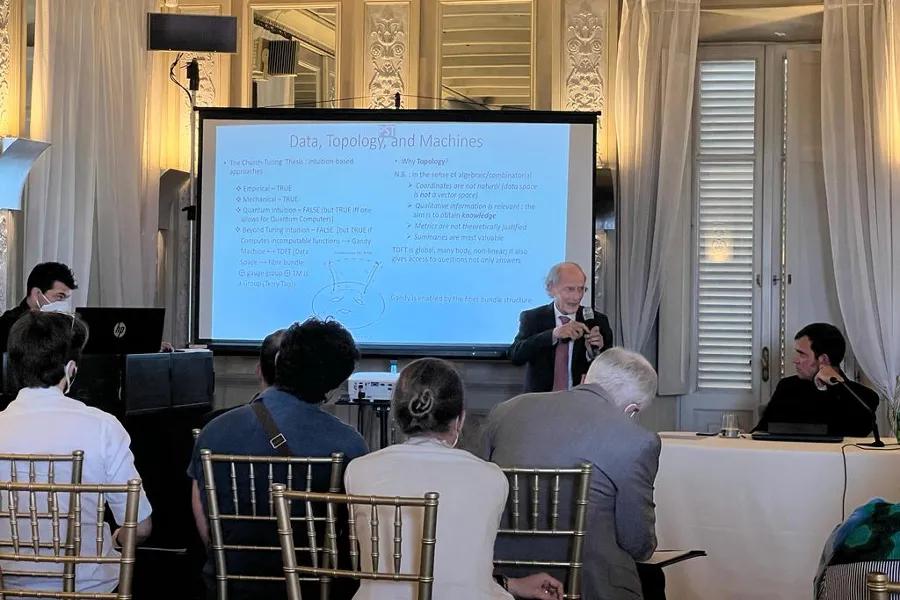
In the second, the theologian and physicist Giulio Maspero discussed with theoretical physicist Mario Rasetti why it might prove difficult to ever measure general artificial intelligence, even though scientists are already studying examples of non-human intelligence such as the dance of honey bees.
A third panel highlighted that AI so far lacks the quality of self-awareness. The moment that computers become smart enough to be self-aware is still some way off — if it will ever arrive. But computers will master certain skills or arts such as medicine, law, and mathematics on an equal level and, eventually, better than humans, the conference heard. These developments will have an impact on our view of the human person, our self-understanding, and human rights.
Emphasizing that the conference was interdisciplinary, Serazin said: “The reason why this unique mix of people that we’ve brought together is so important is that something so fundamental to our self-understanding, and our understanding of how human beings flourish, requires all of the disciplines in order to arrive at truth, that truth has a wholeness that is not merely described by mathematics, or by art, or by history, but by taking these different perspectives.”
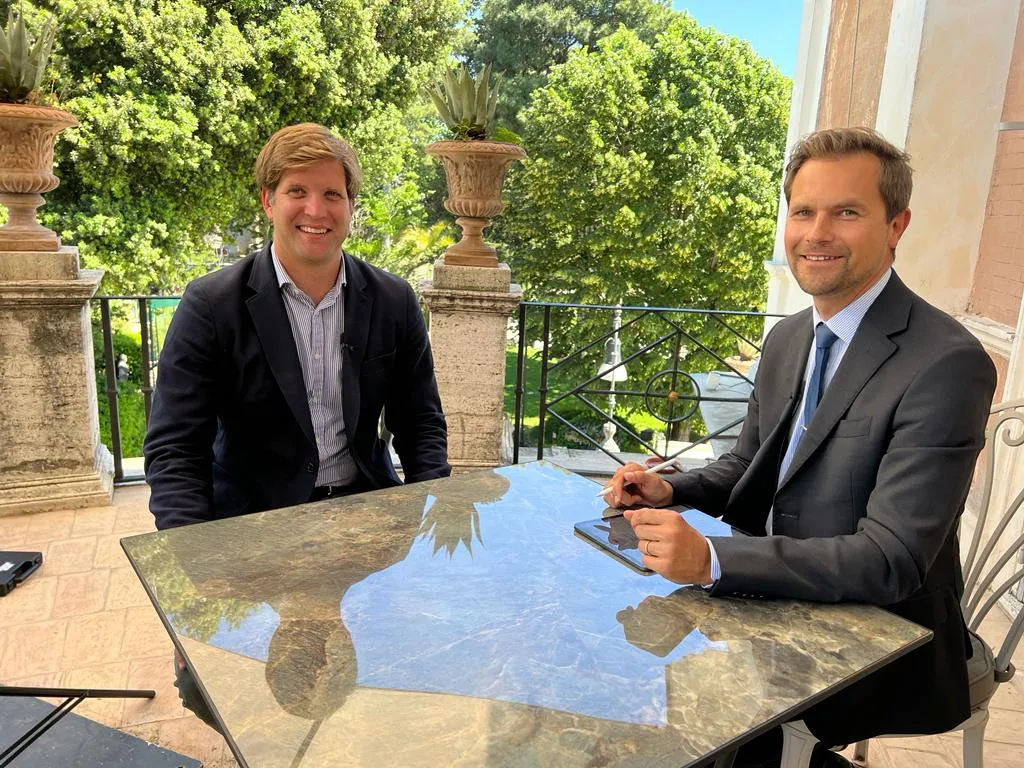
He added that the conference brought together both scientists and faith leaders because “communities of faith and communities of learning are pillars of our civilization.”
“These are hallmarks of the best of humanity,” he said. “And so when we think about trying to solve any problem, whether that’s climate change, or poverty, or applications of artificial intelligence, we must bring all of the resources that humanity can bring.”
Serazin concluded that his foundation’s goal was to “keep humans in the loop.” There are more and more algorithms making decisions for people. For Serazin, this is another reason why philosophers and theologians should engage with computer scientists and developers of new technology.
He said: “I think what’s so important about retaining the human perspective, and also an understanding of the human person that comes from theology and philosophy, is fundamental dignity that is located within humanity — not to outsource those decisions to algorithms or machines and to retain the decision-making authority with people. Because it is people that have, fundamentally, the moral authority to act in the world.”
If you value the news and views Catholic World Report provides, please consider donating to support our efforts. Your contribution will help us continue to make CWR available to all readers worldwide for free, without a subscription. Thank you for your generosity!
Click here for more information on donating to CWR. Click here to sign up for our newsletter.




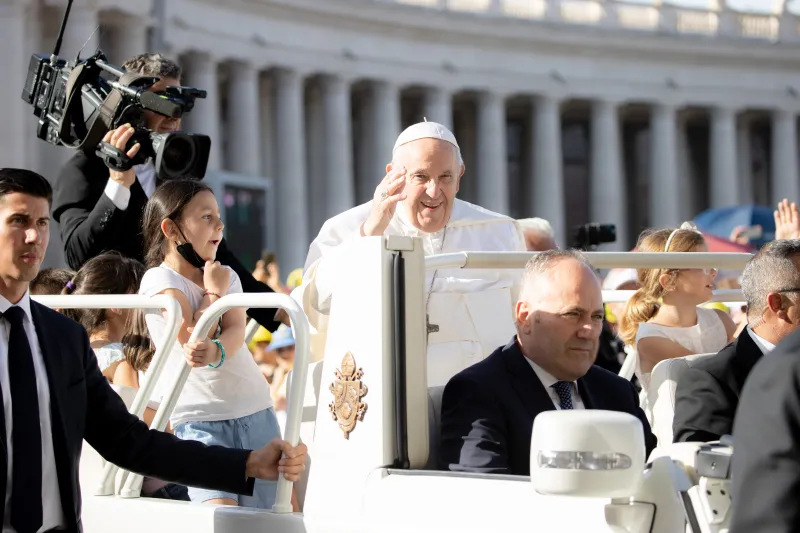
Alexa knows all. Knowledgeable that what we enter into a robotic system we can program devices to intelligently respond to, even resolve law issues. Although, there are certain complexes of human thought, hazy nuances that might have seemed out of reach. Symbolic logic was thought the end all for philosophy by the Dean at the Angelicum, who I challenged, arguing there are intellectual nuances that logical symbols cannot capture. Toward the end of the semester and multiple trials he admitted he was wrong.
Years later after dinner, relaxing with visiting family, my brother in law for a prolonged period of trial and error requested that Alexa locate and play a rare piece on his sound system. Finally, I heard a voice [Alexa] say in a pleading tone Frank, isn’t it past your bedtime?